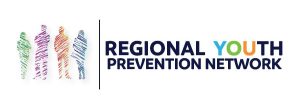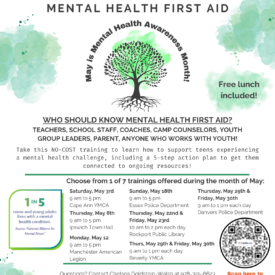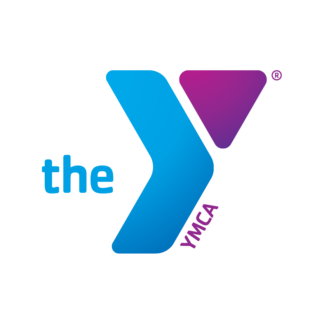The mission of the Gloucester Health Department Prevention Team is to reduce substance use and promote mental health awareness and access for youth and families in Gloucester. The Prevention Team focuses on upstream, early intervention to mitigate risk to prevent costly and serious health issues as residents age. Prevention has been proven to be an effective and cost-efficient approach to promoting healthy communities. A recent analysis of the Communities That Care approach, which the Prevention Team uses as a model and which helps communities utilize their resources most effectively to address identified risk factors for substance use, aggression, and other problems in youth, showed that an approximately $602 investment in each child had yielded an estimated $7754 in savings by the time participants were age 23—a $12.88 return for each dollar invested. The researchers estimated that those savings were distributed among individuals/families themselves, taxpayers, and other stakeholders. The return was well over twice as great when the downstream economic benefits of completing college—more likely among those receiving interventions—were factored in.
The Prevention Team oversees the Regional Youth Prevention Network, (RYPN), a robust youth substance use prevention coalition that has demonstrated leadership both locally and regionally and has a proven history of implementing successful community-wide prevention programs. The RYPN brings 14 years of leadership experience implementing the SAMHSA Strategic Prevention Framework (SPF), implementing a comprehensive SPF assessment, planning, and capacity building process that has informed community-wide approaches to strengthen the prevention and reduction of alcohol and drug use among youth and young adults. The RYPN has begun to shift the culture of youth drinking and other drug use; however, continued efforts are needed to reduce underage substance use in the community.
Prevention is needed now more than ever. As reported in the 2022 Gloucester Youth Risk Behavior Survey (YRBS) the most commonly used substances among Gloucester students are alcohol, marijuana, and electronic vaping products. In 2022, 29% of high school students reported current use (defined as using within the past 30 days) of alcohol, 20% reported current use of marijuana, and 19% reported current use of electronic vapor product. A smaller percentage of middle school students reported current use of these three substances; however, it is noteworthy that more students use electronic vapor products than alcohol and marijuana. Fentanyl is permeating the illicit drug supply and causing ever-greater numbers of overdose deaths. It is increasingly found in counterfeit prescription pills, which are liable to be taken by youth and other people with no previous exposure to opioids. In 2020, for the first time, fentanyl overdose deaths in teens spiked to nearly double the rate it had been in previous years.
The Prevention Team’s current initiatives are addressing an identified gap in opportunities for youth in Gloucester to participate in prosocial activities with peers in substance-free spaces with a healthy, safe adult present. Absence of these opportunities can lead to unstructured time, feelings of boredom, and an increased likelihood of engaging in risky behaviors, including underage alcohol use. Recent focus groups that were conducted by the Metropolitan Area Planning Council (MAPC) revealed a consistent message from both adults and youth in the community that a safe and fun space for teens to spend time is needed. These focus groups also revealed a specific need for increased opportunities to access alcohol-free spaces for middle school students to gather with a safe adult present. These opportunities would foster a sense of belonging, and, since a common risk factor for substance use is youth not feeling a sense of community, providing a space in which youth are welcomed can foster friendships and community, as well as sober activities to occupy their time. Currently, no such space exists in Gloucester that caters to middle and high school students. The YMCA Teen Center that existed in this community for many years was closed approximately five years ago, leading to a lack of an identified space where youth 12-20 years old can spend time. The RYPN is working to fill these gaps by increasing available spaces for young people to access healthy, fun activities and spaces to build protective factors that mitigate the risk of substance use. The Prevention Team is currently partnering with community organizations such as the Gloucester Public Schools, the Gloucester Education Foundation, Pathways for Children, The Open Door, Cape Ann Art Haven, Movement Arts of Gloucester Massachusetts, and the YMCA to provide sober spaces and activities for youth in the community centers, schools, and YMCA.
Our Partners in Gloucester
- Leah Briere – Client Services Manager, The Open Door
- Crystal Contrino – Cape Ann Area Director, Children’s Friend and Family Services
- Jonna Clark – Case Manager, Student Assistance Program, Beth Israel Lahey Health
- Alyssa Clement – Senior Case Manager, Student Assistance Program, Beth Israel Lahey Health
- Reilly Ellis- Case Manager, Younity Access Center
- Shaina Doberman- Director, Younity Access Center
- Chelsea Goldstein-Walsh – Regional Prevention Director, Gloucester Health Department
- Dan Liebert – Prevention Coordinator, Gloucester Health Department
- Lacey Natti- Regional Prevention Coordinator, Gloucester Health Department
- David Tucker – Youth Development Coordinator, Gloucester Health Department
- Amy Kamm – Director of Mental Health and Social-Emotional Learning, Gloucester Public Schools
- Jordan Reader- Gloucester Advocate, HAWC






